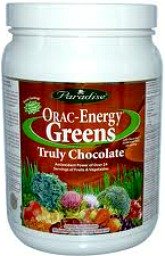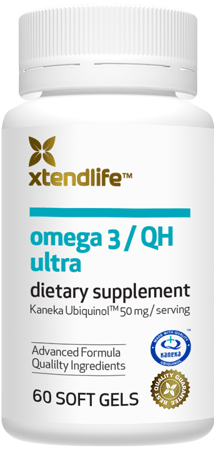Anti inflammatory foods, herbs and supplements: How they work
There are many anti inflammatory foods, herbs and even few supplements which can help you reduce inflammation as well as lower the risk and treat inflammatory heart disease.
However, your best bet is healthy diet which consists of foods, listed below.
On the other hand, some anti inflammatory herbs can be very helpful, while supplements should be your last choice. Only exception would be vitamin D, in case you may be deficient in this vital nutrient.
ANTI INFLAMMATORY FOODS
Anti-inflammatory foods are basicaly the same foods used for treating heart disease. However, some of them are more effective than others. This includes:
Fish contains omega 3 healthy fats which can reduce inflammation because of which it is useful for treating inflammatory heart disease.
Berries are extremly rich in various phytochemicals and antioxidants, thanks to which it can neutralize free radicals caused by inflammation and stress.
Cruciferous vegetables are source of diindolylmethane or DIM. DIM can detoxify and reduce estrogen in the blood. High estrogen leads to inflammation, heart disease and cancer. However, other types of vegetables can be very helpful, too.
Fruits are rich in fiber and anti inflammatory phytochemicals. Since it is very easy to include them into diet, they remain as one of the main weapons against inflammation.
ANTI INFLAMMATORY HERBS
There are many herbs which can be used for the same purpose as foods. Few of them such as turmeric, boswellia or adaptogens can be very effective and in some cases, even better than anti inflammatory foods.
Boswellia seems to work on the brain and on the cellular level. By affecting 5-LOX and COX-2 enzymes as well as by acting on the brain cells, it can reduce inflammation, systematically.
Skullcap contains inflammation modulator baicalein which acts on the nervous system and induces relaxation. It is also used for treatment of inflammatory heart disease.
Devil's Claw is one of most well known anti inflammatory herbs which may work well in combination with Boswellia. However, it doesn't acts right away but over time.
Adaptogens work by balancing hormones and cytokines. Hormonal imbalance is one of the main triggers for inflammation.
Spices such as ginger, parsley, clove and rosemary are also effective, especially when combined with anti inflammatory foods such as fish and vegetables.
Chamomile, Melissa, Valerian and Hops are relaxing herbs which can decrease the risk of inflammatory heart disease by reducing stress hormones such as cortisol.
Turmeric is the most well known and one of the most effective anti inflammatory herbs, thanks to curcumin which is a type of polyphenol.
ANTI INFLAMMATORY SUPPLEMENTS
Although supplements shouldn't be your first choice, when it comes to treating or reducing the risk of inflammation, some of them can be useful.
MSM or methyl sulfonyl methane works by supplying the body with sulfur. Sulfur plays a role in many processes within the body, especially in maintaining connective tissue.
Salicin, that is salysilic acid, is found in several herbs as well as in aspirin. For more informations about salicin, use the search box on the right.
Enzymes such as bromelain, papain as well as others help the body digest food thereby cleaning the digestive tract which reduces the risk of inflammation.
Vitamin D is a vitamin which acts as a hormone. It helps regulate inflammatory processes in the body.
Astaxanthin and Resveratrol are strong antioxidants which have shown to be effective in reducing the risk of inflammation, by lowering C-Reactive Protein and modulating genes involved in inflammation.
WHAT TO AVOID
While these anti inflammatory foods, herbs and supplements can make a difference, so can your eating habits. More precisely, the bad foods you eat and that you shouldn't.
Foods high in fats, especially trans fats as well as foods high in carbs, especially simple carbs are on the top of the list. Usually these are processed, refined foods such as donuts, some cooking oil, fried foods, pancakes, flour, margarine, high fructose drinks, pasta, cookies and candies. Even some healthy foods such as honey due to high carb content can be inflammatory, if consumed in excess.
Dairy products, food aditives, gluten, alcohol and processed meat can also make treating inflammatory heart disease as well as other inflammatory conditions much more difficult.
- Heart Healthy Diet: Simple Tips and Guidelines
- Learn everything you need to know about heart healthy diet and find the right one for you. Implement few simple tips for immediate benefits.
- Heart Healthy Foods: How to Get the Most from Them
- Heart healthy foods can improve cardiovascular system function. Foods good for the heart are bursting with vitamins, minerals and rejuvenating phytochemicals.
- Herbs for the Heart and Cardiovascular System
- You have heard for hawthorn and garlic but there are few other herbs for the heart which can help in treating heart disease, naturally.
- The Best Heart Health Supplements
- Besides fish oil, there are several heart health supplements which can be useful. This includes Coenzyme Q10, Salicin, vitamin D3 and few others.
- Heart Healthy Spices
- Although there are many heart healthy spices out there, each of them can help prevent and treat heart disease in its own way, thanks to different types of flavonoids in these heart spices.
- Stress and Heart Disease: How are They Connected
- Stress and heart disease are closely related. In order to decrease the risk of heart problems, we have to learn how to handle the stress and treat its consequences, if we are unable to avoid it.
- Cardio Exercises for the Heart and Cardiovascular System
- Cardio exercises are vital part of natural heart disease treatment. However, which kind of heart exercise you should preform, varies from person to person.
- Good vs Bad Cholesterol: How to Improve Cholesterol Values
- Good vs bad cholesterol conflict is somewhat misunderstood. There is no good or bad cholesterol but only high or unbalanced cholesterol.
- Good Fats vs Bad Fats: Nutritional Facts and Guidelines
- What is the real truth when it comes to good fats vs bad fats? How much dietary fats should you consume daily and what are the best food sources of healthy fats?
- High Blood Pressure Remedies
- High blood pressure remedies range from tips and lifestyle modification to herbs and supplements. However, the method that works for someone else, may not work for you.
- Normal Heart Rate: How is Regulated and Influential Factors
- Normal heart rate varies from person to person. Although, age affects resting heart rate, there are many other factors that can raise or decrease heart rate.
- How to Lose Fat: Overlooked Tips for Weight Loss
- How to lose fat is surely one of the most intriguing questions for so many people. However, the answer is very simple. Eat healthy foods, perform fat burning exercises and take care of your hormones.
- Hormones and Heart Disease Connection
- Don't neglect hormones and heart disease connection. If you want to treat or prevent heart disease you have to balance your hormones.
- Heart Disease and Immune System Connection
- Heart disease and immune system connection is often overlooked, while trying to improve cardiovascular system function. However, there are several things you can do to change this.
- Dental Health Heart Disease Connection: Facts and Tips
- Dental health heart disease connection is one of three overlooked factors, along with hormones and immune system. However, with smart and effective approach we can change this.
- Causes of Heart Disease
- There are many causes of heart disease and factors that can increase or decrease your risk for developing heart related problems. Check how to turn the tide in your favour.
- Symptoms of Heart Disease
- There are few main symptoms of heart disease. Find out which are they, how to recognize them as well as my personal experience with some of them.
- Diagnosis of Heart Disease
- Accurate diagnosis of heart disease is the first step toward recovery. You can't start with treatment before you know what kind of disease you have, obviously.
- Treatment for Heart Disease: Medications and Surgeries
- Standard treatment for heart disease consists of surgeries, medications and devices. Which one is right for you, depends on your condition.
- Heart Disease Blog
- This is a blog about natural remedies, personal stories, helpful herbs and supplements, workout program as well as other tips and facts which may help people faced with heart disease.
- Contact Me
- Ask questions and leave comments about this site here.
- About the Author of Heart Health Guide
- About the author of Heart-health-guide.com website.
- Heart Health Guide Sitemap
- This is sitemap of Heart Health Guide.com. If you want to get better overview of informations on this website, you can get it here.
Copyright © - Heart Health Guide - All Rights Reserved.



